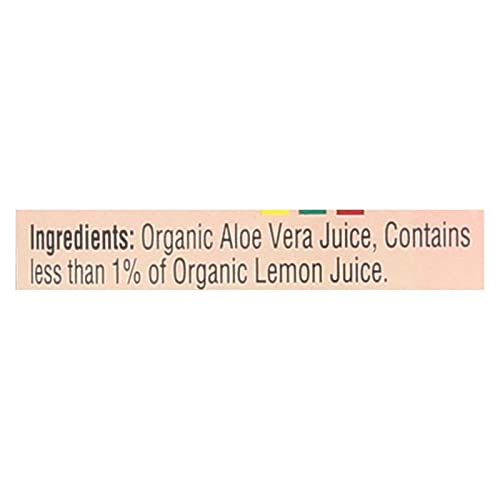Lakewood Organic Aloe Whole Leaf Juice, 32 oz (2-Pack)
Category: lakewood aloe vera juice organic

Title: The Environmental Impact of Plastic Waste
Introduction: Plastic waste has become a global environmental issue. Its impact on the environment is significant and requires immediate attention. This article will discuss the detrimental effects of plastic waste and the steps that can be taken to mitigate its impact.
Body: 1. Pollution of Water Sources: Plastic waste pollutes water sources, such as rivers and oceans, causing harm to marine life. Animals often mistake plastic for food, which leads to ingestion and sometimes death. Plastic waste can also disrupt the marine ecosystem by contaminating the food chain.
-
Soil Contamination: When plastic waste is improperly disposed of, it can contaminate soil. This pollution affects not only plants but also animals and humans. It takes hundreds of years for plastic to degrade, so the impact on the soil is long-lasting.
-
Air Pollution: Burning plastic waste releases toxic fumes into the air, adding to air pollution. The release of harmful chemicals during incineration poses health risks to both humans and wildlife. Inhalation of these toxic fumes can result in respiratory problems and other illnesses.
-
Greenhouse Gas Emissions: The production and disposal of plastic waste contribute to greenhouse gas emissions. Plastic is made from fossil fuels, such as oil and gas, which release carbon dioxide during their extraction and refining processes. The incineration of plastic also releases greenhouse gases into the atmosphere.
-
Microplastics: Plastic waste gradually breaks down into smaller particles known as microplastics. These microplastics are pervasive in the environment and can be found in water bodies, soil, and even the air we breathe. Microplastics pose a threat to both human health and wildlife, as they can accumulate in living organisms and cause various health issues.
Mitigation Measures: 1. Reduce and Reuse: Reducing the consumption of plastic products and reusing durable alternatives can significantly reduce the generation of plastic waste. Using reusable water bottles, grocery bags, and avoiding single-use plastic items are simple but effective lifestyle changes.
-
Recycling: Proper recycling of plastic waste can alleviate its environmental impact. By separating plastic waste for recycling, it can be transformed into new products without the need for additional resource extraction.
-
Education and Awareness: Raising awareness about the environmental impact of plastic waste is crucial. Educating individuals about the benefits of reducing plastic consumption, proper waste management, and recycling can inspire behavioral changes that collectively contribute to a cleaner environment.
-
Policy Interventions: Governments should implement policies and regulations to control the production, use, and disposal of plastic. Imposing taxes or banning certain single-use plastics can incentivize manufacturers and consumers to opt for more environmentally friendly alternatives.
Conclusion: The environmental impact of plastic waste is undeniable. It affects water sources, soil, air quality, and contributes to greenhouse gas emissions. However, through the adoption of mitigation measures such as reducing consumption, proper recycling, education, and policy interventions, we can lessen the burden of plastic waste on our planet. It is essential that we take immediate action to protect our environment and promote sustainability.
product information:
| Attribute | Value |
|---|---|
| best_sellers_rank | #418,496 in Grocery & Gourmet Food (See Top 100 in Grocery & Gourmet Food) #4,182 in Fruit Juice Beverages |




















